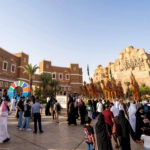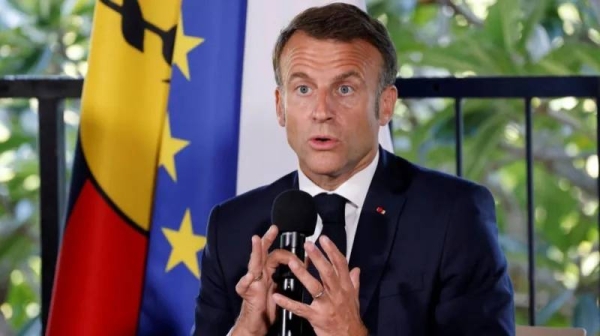President Macron has labeled the recent violent riots in New Caledonia as an “unprecedented insurrection movement” that has taken authorities by surprise. The riots, triggered by a controversial electoral reform, have resulted in six deaths and hundreds of injuries. The French territory located in the Pacific has been experiencing tensions between the central government in Paris and indigenous Kanaks. Indigenous protesters fear that the new electoral law giving voting rights to long-term French residents will diminish their influence. President Macron has vowed to restore calm and security in the region, even deploying a 3,000-strong force from France.
The violent riots in New Caledonia, which began on 13 May, mark the worst unrest the territory has seen since the 1980s. A state of emergency has been declared, and President Macron has emphasized the need to prioritize peace and stability in the region. Macron has engaged in discussions with local political and business leaders, including separatist leaders, in an effort to address the root causes of the unrest and find a path towards resolution. However, the political future of New Caledonia remains a sensitive subject, with challenges ahead for Macron in navigating the complexities of the situation.
Police have detained 269 individuals in connection to the violence, and New Caledonia is under a state of emergency. President Macron has hinted at the possibility of lifting the emergency status in the near future, signaling a potential shift towards restoring normalcy in the region. With a population of approximately 300,000 people, including 112,000 indigenous Kanaks, New Caledonia faces complex political dynamics stemming from historical agreements and disputes over autonomy. The territory’s Nouméa Accord of 1998 aimed to grant more political autonomy to New Caledonia, but recent electoral reforms have sparked renewed tensions.
New Caledonia’s political landscape is shaped by the Nouméa Accord, which allowed for three referendums on the territory’s future. Despite independence being rejected in all referendums, tensions persist between indigenous Kanaks and French residents. The recent proposal to grant voting rights to French residents who have lived in New Caledonia for 10 years has reignited debates over representation and influence in the region. As President Macron engages with stakeholders in New Caledonia, the focus remains on finding a resolution that addresses the concerns of all parties involved and paves the way for sustainable peace and stability in the territory.











